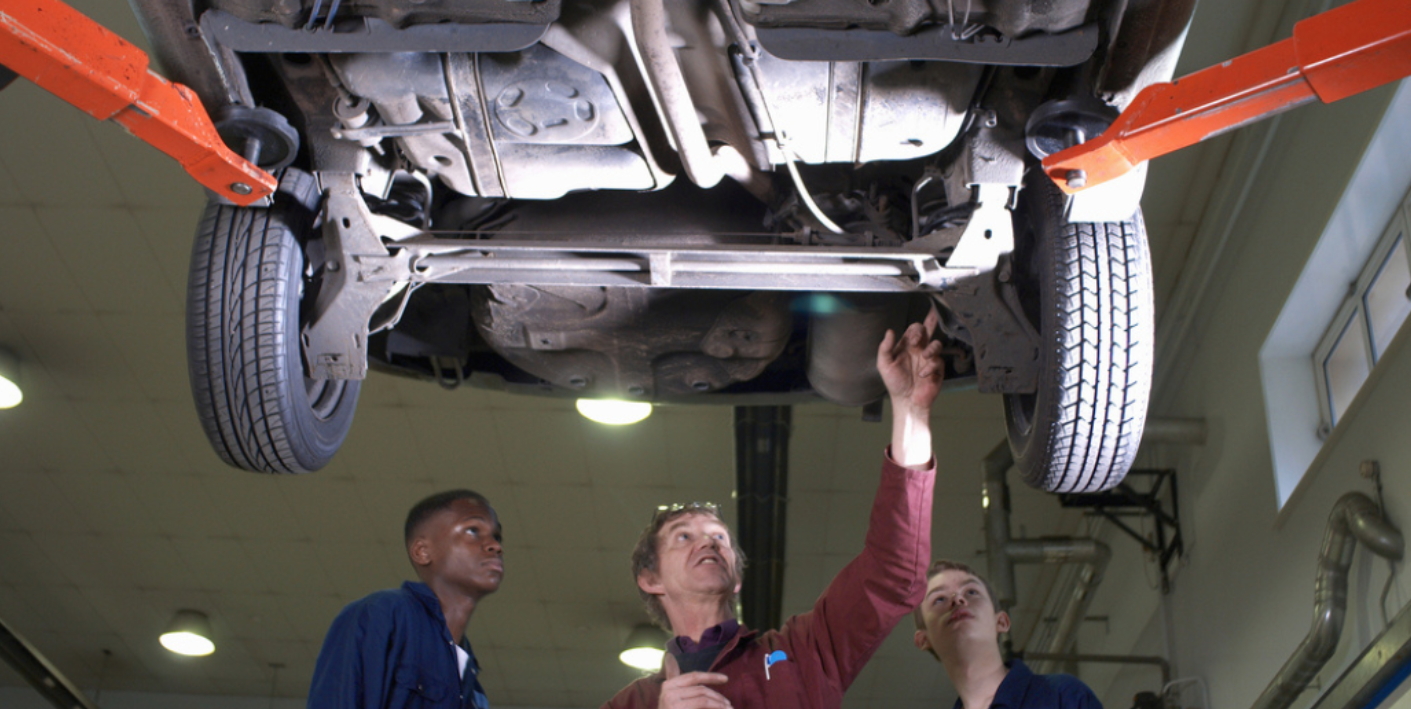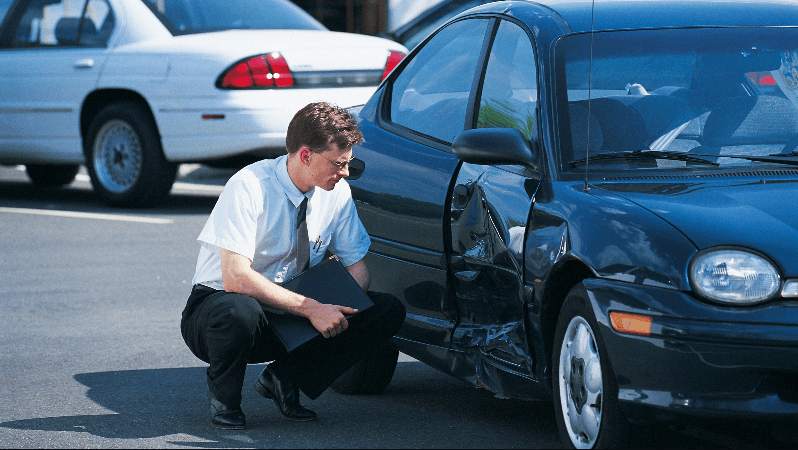Ever wondered what a salvage title car is and whether it’s worth the risk? You’re in the right place!
This is the Ultimate Guide to everything you need to know about salvage title cars.
We’ll start with their intriguing history and expand on their hidden benefits and potential pitfalls, we’ve got it all covered.
Experts insights, real-life cases, guides, literally everything you need to know!
Ready to dive in? Let’s go!

DOWNLOAD NOW THE Salvage Title Car: Risks and Rewards PDF
What is a Salvage Title Car?
A salvage title car is a vehicle that has been significantly damaged and/or deemed a total loss by an insurance company.
This means the cost to repair the vehicle exceeds its market value or the state threshold.
👉 Check State Thresholds HERE 👈
What are the Lead Factors?
The most common reasons for a car to receive a salvage title are severe accidents, but it can happen in natural disasters like floods or fires, and even major theft recoveries.
“Private vehicle auctions are the primary and most profitable channel for insurance companies to sell cars recovered from accidents, thefts, or armed robberies.” — Pimentel AD, Pereira LG. Auctions and Mechanisms. Stolen Cars: A Journey Through São Paulo’s Urban Conflict, 2022.
A determination can stem from all these types of damage.
According to the National Insurance Crime Bureau (NICB), thousands of vehicles receive salvage titles every year due to natural disasters like hurricanes and floods.
| REASONS | CASES PER YEAR | CASES PER YEAR (%) |
| Severe Accident | 400k | 45% |
| Natural Disasters (flood; fire) | 200k | 23% |
| Theft Recovery | 150k | 17% |
| Vandalism | 90k | 10% |
| Other (mechanical failure; abandonment) | 50k | 5% |
Beyond the Formula
The criteria for issuing a salvage title vary significantly across different states and provinces.
Generally, a vehicle is deemed “salvage” when the repair or replacement cost is in excess of approximately 70% of its market value at the time of the accident or theft.
Some regulations require a salvage title for stolen or vandalized vehicles which are not recovered by police within 21 days.
Under some circumstances, a salvage title denotation may be removed or replaced with a Rebuilt Salvage designation.
Cars imported to, or exported from, the United States may be issued a clean title regardless of history.
Every Salvage Title Car is a Totaled Car?
Not necessarily. The terms “salvage title car” and “totaled car” are often used interchangeably, but they’re not always the same.
A salvage title means the vehicle has been significantly damaged, but not all salvage title cars are beyond repair.
In contrast, a junk title is given to these cars that can only be used for parts or scrap and are not to be repaired to road-worthy conditions.
Summarizing: Every totaled car is a salvage one or a junk one.
The History of Salvage Title Cars
Salvage titles have been around for decades, primarily as a means to protect consumers from unknowingly purchasing severely damaged vehicles.
The concept gained traction in the mid-20th century as car ownership became more widespread and insurance practices evolved.
Market Rise
Over the years, regulations have tightened, but the market for salvage title cars has grown, driven by bargain hunters and auto enthusiasts looking for restoration projects.
Because a salvage title can be issued to a vehicle with easily repairable problems or no damage whatsoever, the low cost of the salvaged motorcycle or car is appealing to some hobbyists and investors.
Experts recommend caution when purchasing a salvaged vehicle, because there may be hidden damage, which, if unrepairable, may render the vehicle a “pile of parts.”
Risks and Benefits of Buying a Salvage Title Car
| BENEFITS | RISKS | ||
| Cost Savings | The price is the main attraction in the repertory of a salvage title car. | Safety Concerns | Even in well-repaired vehicles, it might not be as safe as it once was. |
| Restoration Projects | If you enjoy working on cars as a hobby, buying a salvage title car is the way to go! | Insurance Challenges | Many insurers refuse any type of coverage altogether. |
| Parts Supply | Are you scavenging for specific car parts? — “One’s trash is another’s treasure.” | Resale Value | The worst problem of buying an extraordinarily cheap car is trying to resell an extraordinarily cheap car. |
An analysis by Edmunds shows that salvage title cars depreciate faster than their clean title counterparts, often losing 20-40% of their value upfront.
The Insurance Institute for Highway Safety (IIHS) notes that salvage title cars often have higher accident rates and more severe injuries in subsequent crashes.
Should I Buy A Salvage Title Car?
First you need to understand that the resale value is nearly zero! So, are you willing to drive it until the wheels fall off?
The premium prices for salvage title cars can be more than double those of regular ones. And the juicy financing is another door that’s most likely shut.
The Brigth Side
On the other hand, a car can still have a lot of miles left on it and have a truly cosmetic-only body repair that is expensive enough to get the car totaled by an insurance company, leading to a salvage title.
That’s the kind of salvage title car to look for, and not a flood car dredged up from the gulf.
Yes! I’m Buying It!
Acquiring a salvage title car without seeing previous pictures, receipts for the repair done, or a detailed history explaining why it has a salvage title, is a clear definition of “bad decision”.
That’s where an independent appraiser comes in handy. An expert’s overlook should help you through your decision making. Always run from any seller that wouldn’t agree with it.
Besides all the careful preparation and inspection, you are still taking a lot of risk, and only a huge discount may justify it.
Salvage Title Car: Infame Occurrences
Hurricane Sandy | 2012
Hurricane Sandy resulted in thousands of vehicles being given salvage titles due to flood damage.
Many of these cars were later resold, sometimes without proper disclosures, highlighting the importance of buyer diligence.
Houston Floods | 2017
Similar to Sandy, the Houston floods led to a surge in salvage title vehicles entering the market.
Buyers were often unaware of the extent of the flood damage, leading to safety and reliability issues.
What About the Law?
Salvage title cars come with a host of legal and insurance considerations.
State Regulations
The legal implications of owning a salvage title car can vary widely depending on the state.
The Wiley Online Library discusses the varying regulations across states, emphasizing the importance of understanding local laws.
For instance, some states may allow the salvage title designation to be removed after certain inspections and repairs, while others may not.
Vehicle Reports
Services like Carfax and AutoCheck provide vehicle history reports, which can be crucial for buyers to understand the past damages and title status of a vehicle.
However, the accuracy of these reports can sometimes be limited due to gaps in data reporting. The New York Times reported that Carfax settled a class-action lawsuit in 2007 regarding the comprehensiveness of its reports, illustrating the challenges in obtaining complete vehicle histories.
Title Washing
HeinOnline explores the practice of title washing, where a vehicle’s registration is transferred across state lines to remove the salvage brand. This is often legal but can be misleading for potential buyers who might not be aware of the vehicle’s full history.
HeinOnline highlights that this practice is not standardized, and a vehicle with a salvage title in one state may receive a clean title in another.
Tips for Buying a Salvage Title Car
- Get a Detailed Vehicle History Report
Use services like Carfax or Auto Check to understand the car’s history. - Have it Inspected by a Mechanic
A professional inspection can uncover hidden issues that aren’t immediately apparent. - Understand the Insurance Implications
Contact your insurance company to see if they will cover the vehicle and at what cost. - Check State Laws
Regulations regarding salvage titles vary by state, so make sure you know the rules in your area. - Consider the Total Cost
Factor in potential repair costs and lower resale value when calculating the total cost of ownership.
Quick Summary
A salvage title car is a vehicle that has been significantly damaged and/or deemed a total loss by an insurance company, thus diminishing its price.
This offers significant savings and unique opportunities for the right buyer.
However, as in most financial cases, the risk accompanies the opportunity.
First things first. If you read the entire article, congratulations.
You deserve at least a “conversation certificate” of Salvage Title Cars; this gives you the highest authority (when talking with your friends about it).
Jokes aside, thank you for reading the text.
We hope that by getting a glimpse into the history, hidden pitfalls, and some expert advices, your knowledge about salvage title cars has become way more extensive, data-driven, and resourceful.
Now that you’re an expert, are you confident to buy a car with a salvage title?




